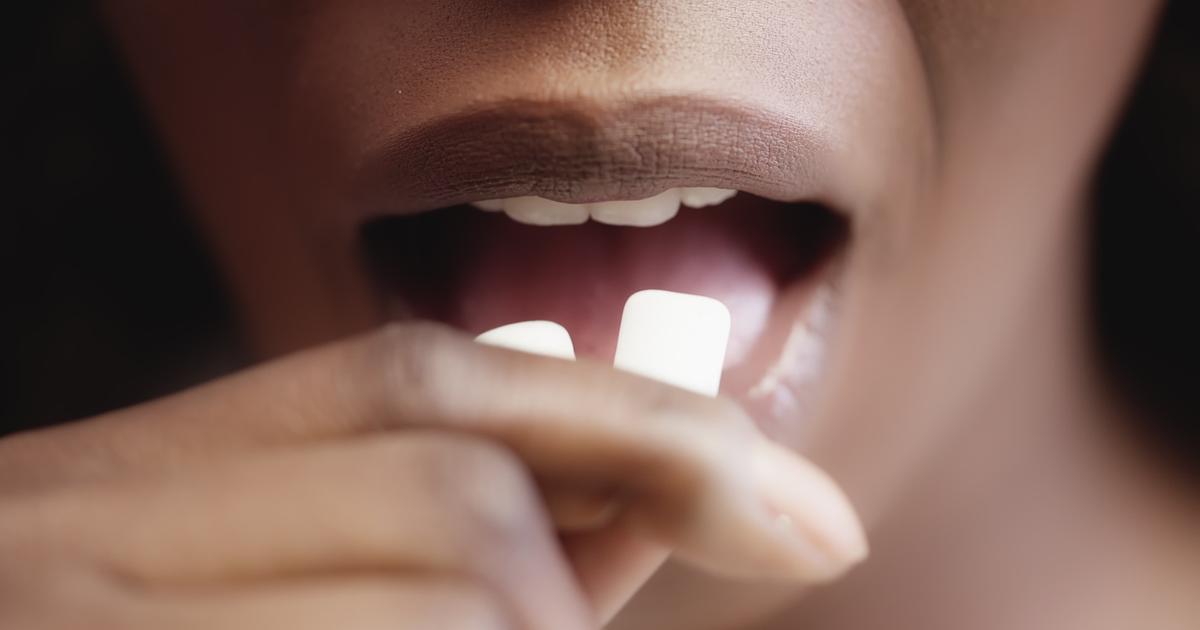Some choose it with mint, others with strawberry or with the mention of freshness.
Chewing gum is appreciated for its taste, sometimes for its anti-stress effect and especially for the freshness of breath it provides.
But is this treat safe for your health?
Can we consume it all day long?
To discover
Podcast
> Gwyneth Paltrow: the strange guru from the Upper East Side
Download the Le Figaro Cuisine app for tasty and authentic recipes
Also read: Why does the belly get bigger with age?
Dental hygiene and chewing
“According to the French Union for Oral Health (UFSBD), you can chew up to 5 pieces of sugar-free chewing gum per day,” immediately indicates Professor Élodie Terrer, dental surgeon and microbiology researcher.
Contrary to what one might think, chewing gum can have a positive effect on dental hygiene, especially when you do not have the opportunity to brush your teeth after a meal.
“Chewing stimulates the production of saliva in the mouth and saliva has a self-cleaning role,” informs the dental surgeon.
Through its neutral PH, it limits acid attacks from foods on tooth enamel.”
However, this information only applies to sugar-free chewing gum.
“The sugary version is a disaster for the teeth and the oral cavity, just like candy,” warns Professor Élodie Terrer.
And if you don't brush your teeth after eating such confectionery, this encourages the appearance of cavities.
Also read: Should you brush your teeth before or after breakfast?
But is it good to chew so much?
Yes and no, answers the dental surgeon.
“Chewing gum relaxes the chewing muscles but you should not keep it in your mouth for more than 20 minutes,” she explains.
Beyond that, we overstimulate the jaw and risk a stiff effect.
Ultimately, this can create problems with the temporomandibular joint (the joint between the lower jaw and the upper jaw).”
Without forgetting the possible appearance of migraines, linked to tensions in the maxillary bone, connected directly to the skull, she adds.
The sweet version is a disaster for the teeth and oral cavity, just like candy
Élodie Terrer, dental surgeon
Chewing gum is contraindicated for people wearing removable dentures, suffering from temporomandibular joint disorders, or complaining of a cracking jaw.
Bloating
When it comes to our intestinal health, the possibilities are more limited.
Chewing gum should be avoided or even banned.
Gastroenterologist, Julien Scanzi explains it.
“When we chew, we ingest the components of chewing gum, but it contains absolutely nothing good for our health.
Sugars, sweeteners, flavorings, colorings... These are a whole bunch of chemical compounds which are not nutritious, and which, for some, disrupt the endocrine system and the intestinal microbiota.
Certain compounds in the treat will destroy the bacteria present in the intestine, thus depleting the microbiota
Dr Julien Scanzi, gastroenterologist
And for good reason, the sugars and sweeteners present in chewing gum “are part of FODMAPs, poorly digested sugars, which ferment in the intestine and can lead to digestive disorders, gas and bloating, informs the doctor.
And as long as we chew with our mouth open, the air ingested increases this bloating.”
By having the habit of finishing a lunch with this touch of freshness, we also risk digestive problems in the longer term.
“Certain compounds in the treat will destroy the bacteria present in the intestine, thus depleting the microbiota,” warns the gastroenterologist.
In the long term, the imbalance this implies can promote poorer health.”
If you still want to consume it, it is best to opt for the sugar-free version, and to use it as occasionally as possible.
The gastroenterologist then advises cutting the confectionery in two, to reduce the quantity chewed and only keeping it in the mouth for a few minutes.

